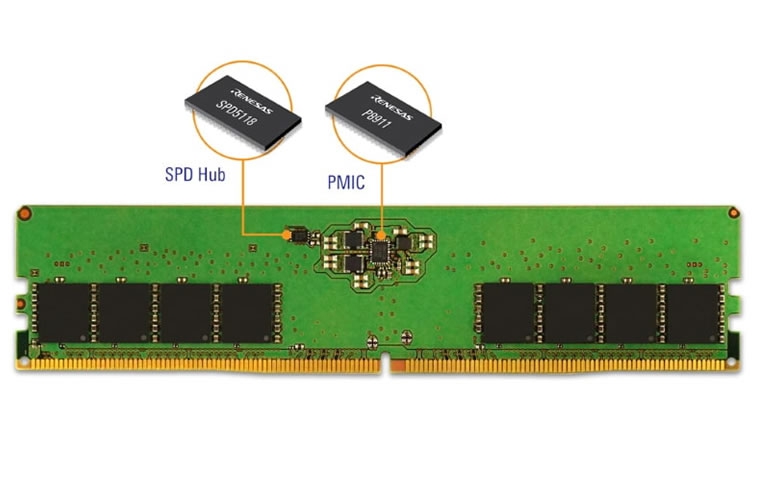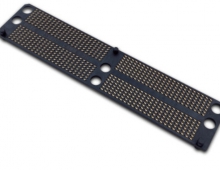
JEDEC Announces Publication of the SPD5118 Hub and Serial Presence Detect Device and the DDR5 SPD Contents Specifications
JEDEC Solid State Technology Association announced the publication of the JESD400-5A DDR5 Serial Presence Detect (SPD) Contents V1.1. This document defines the configuration contents of the non-volatile memory included on all JEDEC standard memory modules and is available for download from the JEDEC website. The DDR5 SPD Contents supports all standard module solutions including DDR5 SDRAM unbuffered, registered, load reduced, differential, and compatible non-volatile memory modules used in computer applications ranging from notebooks through data centers. The SPD allows the host computer to detect the capabilities of the module, and to optimize the configuration of the memory interface for maximal performance. Example SPD codes are given for all JEDEC standard speed grades, assisting suppliers and users in the interpretation of the content definitions.
The Version 1.1 update of the SPD Contents document includes new documentation for multiplexed rank memory modules, and covers example timing tables for DDR5 speed bins up to and including DDR5-7200. Settings for new DDR5 SDRAM features including refresh management are included in this version.
“This annual revision of the DDR5 SPD Content document tracks the newest features of the DDR5 SDRAMs, allowing next generation computer systems to detect and adapt to the capabilities of the devices on every standard module,” said Bill Gervasi, Chairman of the SPD Task Group that developed the specifications. “Weekly coordination between the JEDEC committees defining memory chips and memory modules is an essential part of ensuring smooth evolution of the capabilities of both,” added Mian Quddus, Chairman of the Board for JEDEC. “The industry is well served by these efforts, and we anticipate end users will be very pleased with the results.”
About JEDEC
JEDEC is the global leader in the development of standards for the microelectronics industry. Thousands of volunteers representing over 340 member companies work together in more than 100 JEDEC committees and task groups to meet the needs of every segment of the industry, manufacturers and consumers alike. The publications and standards generated by JEDEC committees are accepted throughout the world. All JEDEC standards are available for download from the JEDEC website. For more information, visit https://www.jedec.org/.





















